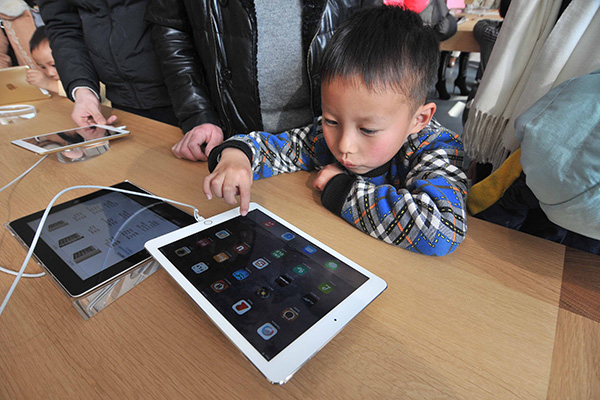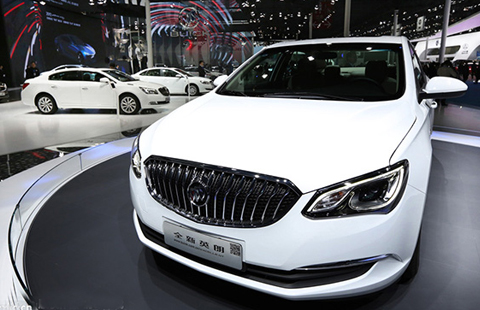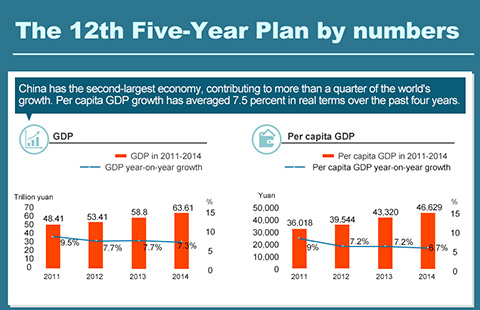Apple manufacturer shuts down plant due to fall in iPad sales
By Ma Si (China Daily) Updated: 2015-10-28 07:24
 |
|
A child touches an iPad in an Apple store, Hangzhou, Zhejiang province, Jan 24, 2015. [Photo/China Daily] |
The plant, located in Nanjing, Jiangsu province, has stopped operations and filed applications to liquidate its assets, the National Business Daily said on Tuesday.
The factory produces liquid crystal display backlight modules for iPads. It has more than 1,500 employees, and churned out 1 million units a month at its peak. It was set up in 2005 by Coretronic (Nanjing) Co Ltd.
The National Business Daily said the factory has no orders to process after it manufactured the last batch of products earlier this month. It is expected to complete liquidation by the end of this year, the report said.
A human resources official at the Nanjing plant confirmed to China Daily the factory had gone out of business, but declined to offer more details, like whether its workers will be laid off.
Coretronic was not immediately available for comment. The company is one of the top three panel manufacturers in the world. Specializing in making LCD backlight modules and optical devices, it also runs at least six other production bases in the mainland, including in Shanghai and Guangzhou.
The closure comes amid weakening global demand for iPads. Data from research firm International Data Corporation show that in the second quarter of this year, iPad sales dropped by 17.9 percent to about 10 million units, marking the sixth straight quarterly decline for Apple's tablet business.
Gene Cao, a senior analyst at market research firm Forrester Research Inc, said the poor performance of iPads will continue in the upcoming quarters.
"When Apple released bigger-screen smartphones such as iPhone Plus, it was fully aware of the possible encroachment on iPads," Cao said. "After all, when handsets with large screens are good enough to meet consumer demand for entertainment, why would they need a tablet?"
What further hurts the sales of iPads is that customers rarely renew their tablets. It is normal for users to buy a new smartphone within a year, but they are less willing to change their current iPads for a newer version, experts said.
To breathe new life into its iPad business, Apple launched iPad Pro in September. It is a bigger version of iPad with a 12.9 inch screen. The product, equipped with a smart keyboard and a stylus, is designed to perform like a desktop computer.
"iPad Pro may be a major growth driver for Apple's tablet lineup in the next year, but it is targeting corporate clients, which means the demand will be far smaller than that for iPads, which is positioned as a consumer electronics product," Cao said.
- Pension funds ready to enter stock market in 2016
- China-Singapore Suzhou Industrial Park targets new reforms
- China's Belt and Road Initiative offers unprecedented chances in Asia
- Yuan usage in S. Korea's trade settlement hits record high in Q3
- ZTE launches new smartphone in Canada
- Beijing relaxes foreign investment rules
- 10 replicas of foreign sites in China
- LeTV to spread its wings in India with smartphones, TVs and cloud computing
















